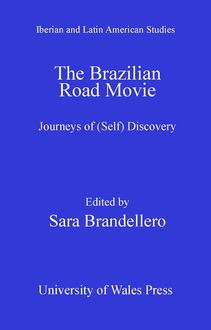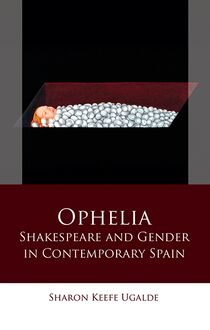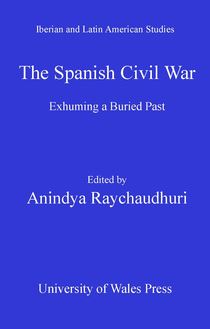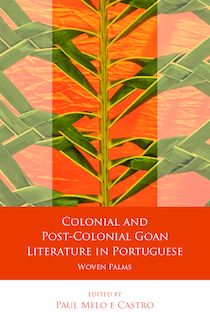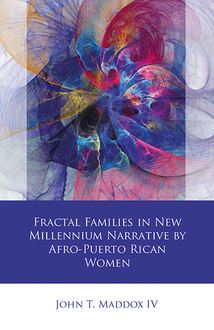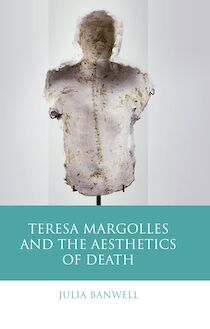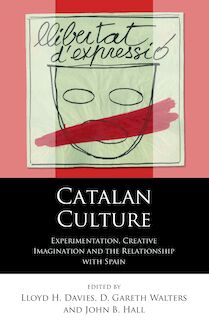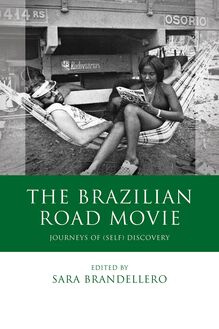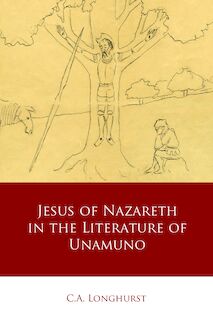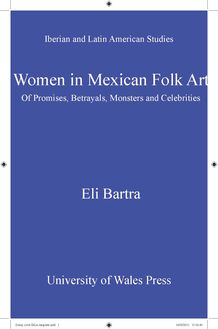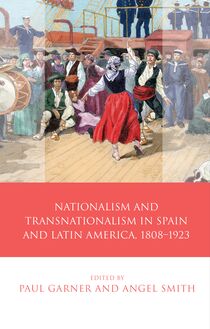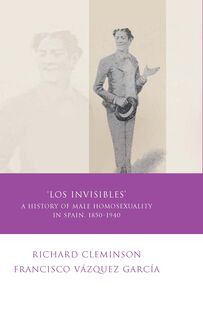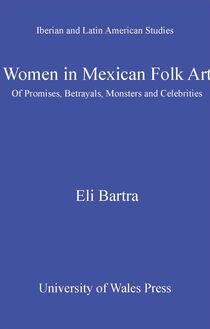Postmodernity in Spanish Fiction and Culture , livre ebook
117
pages
English
Ebooks
2010
Vous pourrez modifier la taille du texte de cet ouvrage
Obtenez un accès à la bibliothèque pour le consulter en ligne En savoir plus
Découvre YouScribe en t'inscrivant gratuitement
Découvre YouScribe en t'inscrivant gratuitement
117
pages
English
Ebooks
2010
Vous pourrez modifier la taille du texte de cet ouvrage
Obtenez un accès à la bibliothèque pour le consulter en ligne En savoir plus
Publié par
Date de parution
15 octobre 2010
Nombre de lectures
2
EAN13
9781783164097
Langue
English
Postmodernity in Spanish Fiction and Culture is a compelling study that combines elements of cultural studies and literary studies in order to present an integrated cultural representation of the emergence of a postmodern social constitution for contemporary Spain. Marking a departure from earlier works about postmodernity and postmodernism in Spain, Postmodernity in Spanish Fiction and Culture establishes a strong connection between postmodernity understood as arising from the social and economic conditions that are the unique features of a Spain of the twentieth and twenty-first centuries, and postmodernism as the lifestyle experiences that manifest the new cultural and artistic practices of the 1980s and beyond.This study examines postmodernity by relating it to those exclusive social and cultural experiences that are patently Spanish (the movida, desencanto, immigration, globalization and terrorism) and concludes that by virtue of Spain’s unique socio-cultural, economic and political history, the country emerges as one of the most postmodern of all European nations; moreover, the conditions that define the country’s evolution from the mid 1980s to the present constitute a distinctively authentic postmodernity.
Publié par
Date de parution
15 octobre 2010
Nombre de lectures
2
EAN13
9781783164097
Langue
English
IBERIAN AND LATIN AMERICAN STUDIES
Postmodernity in Spanish Fiction and Culture
Series Editors Professor David George (Swansea University) Professor Paul Garner (University of Leeds)
Editorial Board David Frier (University of Leeds) Laura Shaw (University of Liverpool) Gareth Walters (Swansea University) Rob Stone (Swansea University) David Gies (University of Virginia) Catherine Davies (University of Nottingham)
IBERIAN AND LATIN AMERICAN STUDIES
Postmodernity in Spanish Fiction and Culture
YAW AGAWU-KAKRABA
Yaw Agawu-Kakraba, 2010 Cover image: Jake Chapman, Jake not Dinos (2006). Reworked etching from Goya s Los Caprichos , 40.2 x 35 cm. The artist. Photograph: Stephen White. Courtesy White Cube.
All rights reserved. No part of this book may be reproduced in any material form (including photocopying or storing it in any medium by electronic means and whether or not transiently or incidentally to some other use of this publication) without the written permission of the copyright owner except in accordance with the provisions of the Copyright, Designs and Patents Act 1988. Applications for the copyright owner s written permission to reproduce any part of this publication should be addressed to the University of Wales Press, 10 Columbus Walk, Brigantine Place, Cardiff, CF10 4UP.
www.uwp.co.uk
British Library CIP A catalogue record for this book is available from the British Library.
ISBN 978-0-7083-2271-0 e-ISBN 978-1-78316-409-7
The right of Yaw Agawu-Kakraba to be identified as author of this work has been asserted in accordance with sections 77, 78 and 79 of the Copyright, Designs and Patents Act 1988.
Contents
Series Editors Foreword
Acknowledgements
Introduction: Towards a Theoretical Exploration of Postmodernity in Spain
Chapter 1: The Postmodern Self and Lifestyle under Postmodernity: the Movida Phenomenon
Chapter 2: Desencanto Within the Matrix of Postmodernity
Chapter 3: Downward Mobility, Disquiet and Nihilism: Postmodernity in Spain at the Edge of the Millennium
Chapter 4: Where Do We Go From Here? The Allegorical Paradigm of Spanish Science Fiction and the Postmodernized Spanish Culture
Notes
Works Cited
Series Editors Foreword
Over recent decades the traditional languages and literatures model in Spanish departments in universities in the United Kingdom has been superceded by a contextual, interdisciplinary and area studies approach to the study of the culture, history, society and politics of the Hispanic and Lusophone worlds - categories that extend far beyond the confines of the Iberian Peninsula, not only in Latin America but also to Spanish-speaking and Lusophone Africa.
In response to these dynamic trends in research priorities and curriculum development, this series is designed to present both disciplinary and interdisciplinary research within the general field of Iberian and Latin American Studies, particularly studies that explore all aspects of Cultural Production (inter alia literature, film, music, dance, sport) in Spanish, Portuguese, Basque, Catalan, Galician and indigenous languages of Latin America. The series also aims to publish research in the History and Politics of the Hispanic and Lusophone worlds, at the level of both the region and the nation-state, as well as on Cultural Studies that explore the shifting terrains of gender, sexual, racial and postcolonial identities in those same regions.
Acknowledgements
This book would not have been possible without the help and support of several friends, colleagues and family members to whom I would like to express my sincerest thanks. The idea for this book emerged from the numerous conversations that Komla Aggor and I have had over the years about Spanish literature, and especially about our role as Ghanaian-American Hispanists and critics in the field of contemporary Spanish narrative and theatre. Komla Aggor read earlier versions of this manuscript and provided valuable insights. I owe him an enormous debt of gratitude. I also want to acknowledge Jill Robbins who read a very early section of the text and offered important perspectives. I am particularly indebted to Samuel Findley who painstakingly read the entire manuscript and provided judicious theoretical and critical comments. Tony Guerrero was steadfast in his friendship and encouragement in the course of writing this book. To Anne, Sena and Delali, I wish to express my sincerest thanks for their patience and support in the course of writing the manuscript.
I thank the editor of Revista Hisp nica Moderna for permission to reproduce a version of my 2002 study on Jos Angel Ma as s Historias del Kronen . I also wish to acknowledge the institutional support of the Pennsylvania State University-Altoona College. The Penn State Altoona Research and Development Grant and the Dean s Development Grant aided research for this book. The anonymous readers for the University of Wales Press deserve mention for their helpful suggestions for improving portions of the manuscript. I appreciate their attention to detail and the care with which they read the manuscript.
I dedicate this book to the three women in my life: Anne Elise, Sena Afi and Delali Aku
Introduction
Towards a Theoretical Exploration of Postmodernity in Spain
Postmodernity in Spanish Fiction and Culture remedies a critical gap that exists within Spanish literary criticism regarding the urgency to define and to identify what really constitutes postmodernity within the Spanish context. A genuine debate about this phenomenon has been lacking because of the tendency of some critics to dismiss postmodernity s existence on the Peninsula. Most of those academic endeavours that engage postmodernity and postmodernism in Spain fail to connect these two phenomena to those exclusive social and cultural experiences that are patently Spanish. Such studies only emphasize postmodernity as social and economic conditions of a Spain of the twentieth and twenty-first centuries, and postmodernism as a lifestyle experience, a manifestation of new cultural and artistic practices that emerged in the 1950s. In arguing in this study that the political pasotismo that preceded and coincided with the movida and desencanto constitute a postmodern condition that extends to the present, Postmodernity in Spanish Fiction and Culture marks a shift from studies that have sought to limit these socio-cultural experiences to the mid 1980s and to the early 1990s. In positing Spain as a nation that has undergone postmodernity and is still experiencing what can be considered full-blown postmodernity, this book advances the discussion of this social phenomenon by entering into a dialogue with previous oppositional and questioning voices in the field in order to provide a more nuanced and fresher look at Spain. Most importantly, however, the authors and the works studied in this book draw out the kinds of postmodern strategies needed within the realm of democratic politics in Spain in the twentieth and twenty-first centuries. A strategy of creative struggle is evident as the authors engage in artistic performative actions designed to confront some of the challenges that face Spain as one of the most industrialized nations in today s Europe.
Postmodernity and postmodernism are as two indispensable socio-cultural phenomena in Spain. To facilitate this claim, the study relates to social and cultural circumstance that are unmistakably Spanish: (a) the advent of the movida that surfaced on the cultural scene of the 1980s in cities including Seville, Madrid, Vigo, Barcelona, Bilbao, and in Spain as a whole in reaction to economic prosperity and new sexual freedom; 1 (b) desencanto , a state of mind generated from dissatisfaction with a free-market and liberal democratic system, considered as an alternative to the previous Francoist socio-economic policies; the nihilism and ennui that marked the identity of the youth toward the end of the millennium because of the loss of faith in the rewards of the economic boom of the 1980s and mid-1990s; and (c) current conditions in Spain, where immigration, globalization and terrorism have become key national issues that have provoked an intense discussion regarding the country s role within the European Union and its position on the world stage at large.
Scholars in the field of Spanish cultural studies have turned to postmodernism in discussion on the complex period of Spanish history and the cultural production that materialized after Franco s death in 1975. Nevertheless, a critical consensus about the nature of postmodernism and its impact in Spain has yet to materialize because of the propensity of some critics to underemphasize, trivialize and denigrate the existence of an at times vibrant and particularly Spanish postmodernism. 2 These critics have done so for a variety of reasons, but there seem to be two chief occludences that provoke their mis-analyses. The first is a mostly theoretical problem: in relying on primarily French poststructuralist and late-Marxist definitions of postmodernism, they are unable to appreciate the ways in which Spanish culture developed the fragmentarity that is at the core of successful postmodernism and postmodernity (the latter being a reaction engendered and enabled by the former). 3 Critics who commit the second error in relying on the commonly agreed canon to define the limits of their critique of Spanish culture, have produced an a priori unitary world of evidence. Consequently, they cannot evaluate the new ways in which peninsular authors are interacting with the fast-changing world. This study is in response to these critics in three ways. First, I examine the works of scholars such as Miguel Cereceda, Alfonso Sastre, Malcolm Compitello and others who argue for a Spain that is only incompletely modern in an effort to strip away the ideology-ridden lens with which they have studied Spain s postmodernism. Second, in my movida and desencanto chapters
